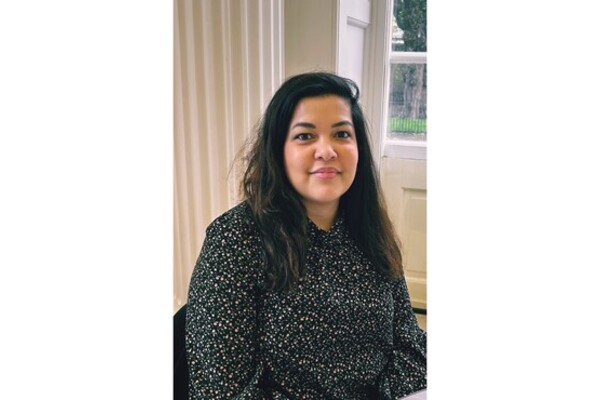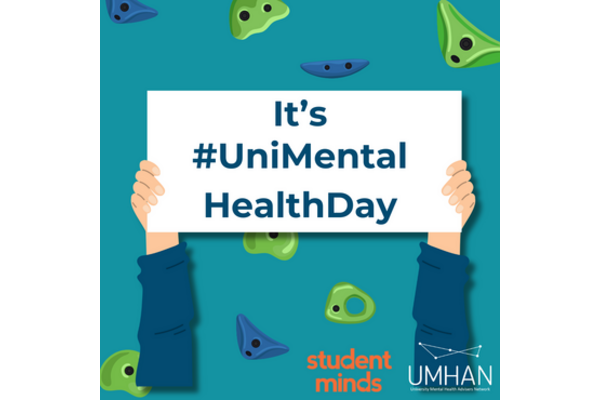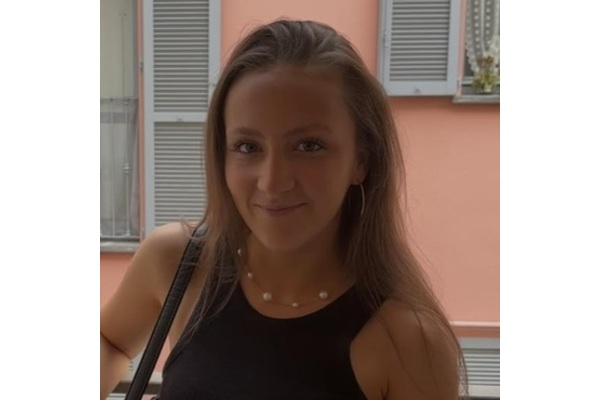Name
Tam Mitchell
Job title
Student Mental Health Coordinator [Student Counselling Services]
Employer
University of Edinburgh
How long have you worked in student mental health?
Around 7 and half years
How long have you been in your current role
Since August 2014
Can you outline your career and how you got to where you are today?
I started mental health nursing in 1989 and have worked in primary care, secondary care, tertiary care and specialist care.
My first Mental Health Nursing [MHN] post was working with people admitted with acquired brain injury [ABI] in a specialist unit at The Royal Edinburgh Hospital called the Robert Ferguson unit [RFU]. My role there was as a primary nurse, and with two health care assistants, we provided 24/7 nursing care and behavioural psychological interventions for one in-patient. The patient we provided care for was transferred to the RFU from the North of Scotland. This person is still often still on my mind, as my first patient. As well as ABI, this person was paralyzed from the neck down after they fell off the back of a tractor while tending to the fields around their croft.
This was obviously a challenging time for the patient, and their family. It was challenging for both the patients and staff within the RFU to deliver suitable interventions, establish a rapport and to support family members. Due to ABI this person found it difficult to manage impulsive behaviors and when distressed they would often bite, scratch and punch you when attending to their ADL’s. Therefore, our role was to try to help the person delay that impulse. We had some little successes over the 12-month period.
The day arrived to travel back with to this person’s hometown when we arrived it was obvious by their happy demeanour they were so glad to be home. When the time came for both the HCA and I to return to Edinburgh and on saying our goodbyes, to a person we had nursed 24/7 for 12 months, this person in turn said their good byes by smiling waving and able to let us give her a wee cuddle without scratching or biting us. This emotional experience left me with fond memories of my first nursing role.
After nursing in the RFU for a year then decided to apply for a new role.
So, I ended up in the professorial unit where the mums and babies came when there was postnatal depression or psychosis. It was a ten-bedded ward, which was the ideal size for group interventions as well as 1-1. The ward then became a 22-bedded ward so we had people with all mental illness presentations. The ward was staffed by professors so there was a lot of emphasis on research. I was a staff nurse there and had my own small caseload of people that I would get to know really well.
After that, I went to the Henderson Day Unit so people from the wards who were then going out into the community would come through the day unit. After I had done that for a year or so, I worked for the Psychiatric Emergency Team [PET] and I think I found a role that I really enjoyed. It was a 24/7 crisis led service. We would offer brief crisis intervention as well as referral onto other services. I was there 2-3 years and during that time I had Secondments to community drug problem service [CDPS] that helped to improve my knowledge, skills and experience, as the PET team would often see clients with drug and alcohol issues in crisis.
Then I moved into a G grade post at another day unit and the role there really was to change to the use of more mainstream services rather than the old traditional psychiatric day hospital. It was about integrating people into the community. Using services that were available to all the population.
One thing I loved about that job … young people aged 18-19 years old with severe and enduring mental illness diagnosis would not attend a psychiatric day hospital. Several young men, who were hard to reach, would not attend a day hospital. Therefore, I got to know them as individuals and luckily they all enjoyed football. I then arranged to meet with them in a local park for a game of football, they all turned up, and these guys got to really enjoy meeting and playing, so I got in touch with other services around Scotland to arrange football games. I would arrange transport and take the guys and supporters around to Perth, Glasgow and Motherwell, and other towns and cities for a game. Then Motherwell F.C. arranged a tournament for people with mental health issues, so mental health agencies from all around Scotland attended the Football tournament and our team Ballenden all-stars got through to the final and won!
At the buffet afterwards, all the guys were talking to each other about medications and they were prescribed and giving each other recommendations about the best ones to take to not slow you down to help you remain well and play football.
I thought this is better than any medication compliance groups I have facilitated. They had more insight as they are prescribed this medication and able to give advice to their peers.
The good thing is that this football still goes on today- 30 years later.
I then was redeployed into primary care, which was new at that time. My role was as a team coordinator for a Primary Care Mental Health Team [PCMHT]. I would meet with all the lead GPs from the practices we provided a mental health service for, to hear what they thought their clients’ needs are and what we could provide. In addition, this area has a very good third sector provision and we would attend meetings with our Third sector colleagues, to find out their views on mental health provision. They all wanted their client group to get timely evidence based type interventions. Therefore, after speaking to my general manager he helped to get PCMHT staff trained in Cognitive Behaviour Therapy [CBT] and Interpersonal Therapy (IPT). Therefore, we were delivering those therapies for the GPs and their and our client group. I am impressed by the GP’s, you could see just how much pressure they were under and they appreciated our efforts to complement our Third sector colleagues to provide a PCMHT service.
During my 10 years in the PCMHT, I applied for a 6 month Secondment with ‘The Mental Welfare Commission Scotland’. My role-included visits to Psychiatric hospitals to ensure people detained under the mental health act Scotland, had access to advocacy and that their care plans were being carried out as written and with involvement from the person and their named person. I found this Secondment very interesting. I also had a part-time Secondment to the Psychotherapy department, were I was a member of an experiential group facilitated by a group therapist. I met with clients 1-1 under supervision and helped to co-facilitate groups. I found this Secondment both challenging and insightful into my own personality traits.
In 2009, I applied for a Nurse Therapist at the Cullen Centre South East Scotland Eating Disorder service. I met clients both individually and in groups, delivering CBT based interventions. I then trained in Dialectical Behaviour Therapy [DBT] and became the DBT lead in Lothian. I went around the CMHT’s to look at how we could meet the needs of a frequently suicidal client group who had often experienced adverse childhood events and complex trauma. I was trying to acknowledge the challenges of helping frequently suicidal clients with often a background of complex trauma and that having a community DBT team might actually be quite helpful for that client group and staff, who often felt their needs, were ignored. We do now have a community DBT team and CMHT’s/Intensive Home Treatment Team [IHTT] provide adapted DBT /CBT called decider skills in groups. The DBT team I was part of developed and we became a multi-agency team and settled into a way of working altogether in a safe and respectful way.
2014 -Then I retired!
So, I retired, and saw an advert at the University of Edinburgh for a Student Mental Health Coordinator [SMHC] post, placed with student counselling services [SCS]. At the time, the SMHC was a new unique post and it looked interesting so I went for the post and offered the job.
The role of the SMHC - my role is to meet with students presenting in acute, complex, enduring mental health problems [ACE]. At this time, I was unaware that the University had a very good counselling and student disability service and really did not know that such good services existed within Universities. I also had a part time post I kept on in the NHS in Psychiatric Liaison in the toxicology ward. I work one weekend a month so that helps me in liaison with NHS colleagues.
How does your experience and training help you to do your job well?
I believe working in a variety of mental health areas with multidisciplinary colleagues has helped me to transfer these broad skills to the students I meet with, these transferable skills to the SMHC role, have helped me to establish a rapport and good working relationships with Counselling staff, Academic staff, student support staff and of course students I meet with.
I managed to negotiate with the local NHS mental health services and GP’s a referral pathway, were I can with a student’s written consent refer directly to the local Intensive Home Treatment Team [IHTT], CMHT and share information only with a student’s consent, with GP’s and NHS specialist services. This can help to cut down the amount of assessments a student may have and help the students, if required to access NHS services in a timely way. The wellbeing Manager at the University continues with other University managers, GP’s and NHS managers to try to replicate this pathway for students.
Can you briefly explain your day-to-day responsibilities?
As SMHC, I am part of the SCS and students identified by self-referral to SCS/initial assessment by SCS/via academic staff/support staff / NHS, services with ACE presentations are triaged to me.
I am very student facing. I will provide a comprehensive assessment possibly over a few sessions, I may suggest that in fact SCS is suitable and refer the student for brief counselling. I may refer the student directly to NHS services and/or liaise with NHS services. I carry a caseload of students and offer supportive psychotherapy while they may be waiting for NHS intervention. Some students who might want to engage but are unsure… I will meet them in a flexible way and say to them you can stay on my caseload for 6 months and if you need an appointment then just email student counselling and I will get back to you with an appointment. That ‘as required’ caseload then seems to help contain the students who know they may need to access psychiatry/psychology in the future.
I also attend ‘support for study’ meetings. Where a student’s behaviour is causing concern, it’s usually on a mental health basis, then we’ll hold a support for study meeting to work with the student to look at how can we support them to continue at University. I will go along in a consultation role along with the Dean of the school, a personal tutor, student advocacy support and the student. Often it ends up that I meet with the student anyway, get to know them, and get to know what their needs are and how we can help them remain at University or if an interruption of studies maybe required.
I have found with my knowledge and experience that I can be a helpful resource with students, University staff and counselling colleagues. In addition, I deliver student mental health training with my student disability services [SDS] colleagues for academic and student support staff.
What’s helped you to stay in your role?
I like the role because I am a fairly autonomous practitioner and can use my clinical experience but also get managerial and clinical supervision at SCS. I meet with undergrads/post grads from all over the world and every day for me is a learning day. I meet with my Mental Health Advisor Colleagues at different universities in Edinburgh for peer supervision and find this very helpful and supportive. I also attend psychotherapy department in the NHS for facilitated group supervision with CPN colleagues, this has been ongoing for about 20 years now. As well as supervision, it keeps in touch with NHS services and continual changes that happen in NHS service provision. More recently, a new group therapist has joined to help facilitate the group. I find clinical supervision is helpful in my role.
What part has UMHAN played in this?
I had not heard of UMHAN until I started work in my role and advised by my manager to join UMHAN. I looked at the UMHAN website, there are many helpful resources, CPD events, and the opportunity to hear and see what is happening in other Universities. In Scotland, we have UMHAN Scotland meets every 6 months where people with all different titles meet up at and one of the universities in Scotland and have a general discussion about what we are doing, how we are doing it and anything new that is happening. We invite a UMHAN UK representative along and outside agencies that encounter students, so they get to know us and us them. Anything new that is happening in other Universities and working, we can try to replicate. However, getting to meet other UMHAN members from Universities in Scotland in similar roles is helpful, It is good to just met everybody, you know. It has brought us all together Scotland wide, where we have regular meetings and get to know everyone. By getting to know them, it is then easier to keep in contact with people in similar roles. In addition, it gives members an opportunity to discuss challenging issues with colleagues. Without UMHAN, this wouldn’t have happened.
What’s your favourite part of your role?
Working with students 1-1 and helping them to manage the many challenges young people/students face. Another favourite is training staff. I am one of a group of staff that include assistant directors from SCS and assistant directors from SDS to provide training. We put on training every year, every month, for the 22/23 different schools in Edinburgh University. As well as getting to meet staff from all the differing schools we deliver student mental health training.
In addition, they get to meet staff from both SCS/SDS staff get to see who you are what your experience might be. Then they feel more comfortable contacting SCS/SDS with any concerns they might have about supporting student’s mental health, that way we can hopefully act earlier that in the long run helps both student and staff member. https://www.teaching-matters-blog.ed.ac.uk/key-takeaways-from-mental-health-training/ I have learnt a lot working with the student client group and student counselling colleagues. Students present with a variety of needs, and if I can help a young person meet those needs this for me is a good feeling.
What has changed in student mental health since you started your role?
Increasing number of students, are attending University with a mental health/illness diagnosis and some students develop a mental health problem when at University. Referrals to both SDS and SCS are increasing year on year. Some of this year’s increase is perhaps due to the Covid pandemic and the disruption this has caused on students teaching/meeting peers/ and receiving peer support. With increasing numbers of students presenting to University support services, the University as well as increasing numbers of counselling and student disability staff are introducing wellbeing staff in each school. I hope that this can help with early intervention and help students remain at University.
What do you think are the biggest remaining challenges?
It seems that demand for student mental health services increase each year and that you will never have enough resources to meet demand. Student counselling services have a good menu of services to help meet students’ needs and demands. On the other hand, with increasing demand for student, counselling can also be positive, that possibly the stigma associated with mental health is being addressed.
Have you got any feedback from students that you could share with us?
“First of all, thank you for this appointment which was more effective than all my previous therapies, since it finally offers me a concrete method to act on my thoughts and emotions.”
“Thank you for everything you’ve done. When you told me that to be angry was appropriate in the situation, I found myself, that changed a lot of things for me”.
“For me a quest, a task is all about survival. To make me realize the importance of being kind to myself. I can only mutter a profound thank you”.
“I am doing my best with so much support around me now, I will keep on fighting!”









